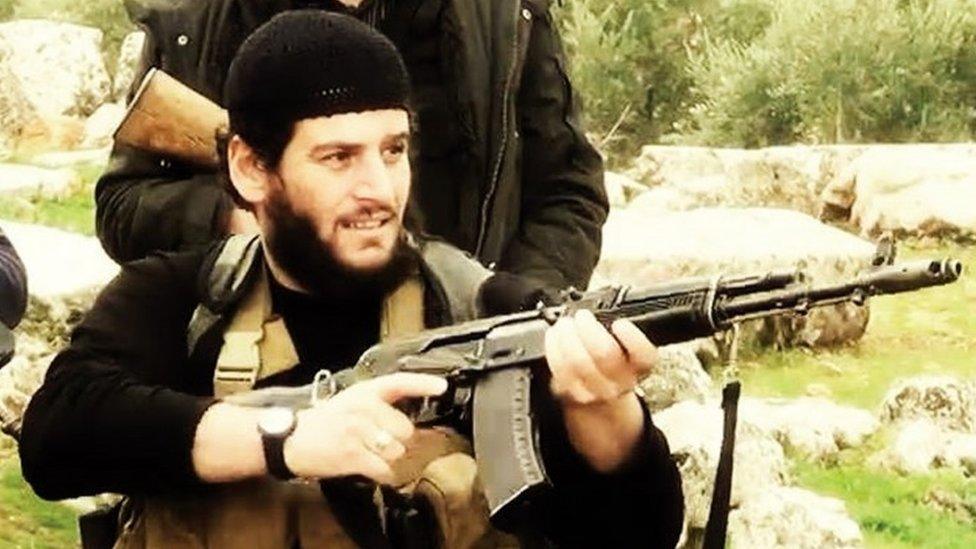US says it killed IS strategist Adnani
- Published

Adnani was mostly known for his calls for lone-wolf attacks in the West
The Pentagon has said a US air strike killed so-called Islamic State (IS) strategist Abu Muhammad al-Adnani - contradicting Russia's claim to have killed the militant.
At the end of August IS said Adnani had been killed in Aleppo province.
Russia's claim came after the US admitted targeting Adnani but stopped short of confirming his death.
Adnani was one of the IS group's most high-profile figures, with a $5m (£3.8m) bounty on his head.
Can IS survive killings of its leaders?
Islamic State group - the full story
Is besieged Aleppo facing last gasp?
"The strike near al Bab, Syria, removes from the battlefield ISIL's chief propagandist, recruiter and architect of external terrorist operations," Pentagon press secretary Peter Cook said, using an alternative name for IS.
"It is one in a series of successful strikes against ISIL leaders, including those responsible for finances and military planning, that make it harder for the group to operate."
The August 30 air strike was conducted by a drone, which fired a missile at the car Adnani was travelling in, he said.
It is not clear why it has taken the US almost two weeks to confirm Adnani's death.
Russia had previously said Adnani was one of up to 40 militants killed in a Su-34 bomber raid on the village of Umm Hawsh, north of Aleppo - a claim Pentagon officials dismissed as a "joke".
Frank Gardner considers what difference the death of Abu Muhammad al-Adnani will make to so-called Islamic State
Adnani - who was also the group's spokesman - was "martyred while surveying the operations to repel the military campaigns against Aleppo", IS-linked Amaq news agency said, without giving details about how he died.
One of the group's founder members, Adnani was born Taha Sobhi Falaha in the northern Syrian town of Banash in 1977.
In June 2014, he formally declared the establishment of the IS caliphate stretching across parts of Syria and Iraq under the leadership of Abu Bakr al-Baghdadi.
The US said he had "co-ordinated the movement of Isil [IS] fighters, directly encouraged lone-wolf attacks on civilians and members of the military and actively recruited" new members.
Earlier this year, he called for attacks during Ramadan, with followers carrying out the Orlando nightclub shooting, the truck attack in the French city of Nice and a massive suicide bombing in Baghdad.